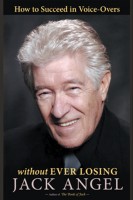VAM 054 | Interview with Monica Rial, Part 1
Welcome to episode 54 of the Voice Acting Mastery podcast with yours truly, Crispin Freeman!
As always, you can listen to the podcast using the player above, or download the mp3 using the link at the bottom of this blog post. The podcast is also available via the iTunes Store online. Just follow this link to view the podcast in iTunes:
http://www.voiceactingmastery.com/podcast
In this episode, I’m pleased to be interviewing my good friend and amazingly accomplished voice actress Monica Rial! Monica has been in so many anime series, it’s impossible to name all of them here, from Dragon Ball to Excel Saga, from Noir to Soul Eater and everything in between. Monica has spent the majority of her career working in Texas and I was eager to get her on the podcast so she could share her knowledge of the Texas voice acting marketplace with those listeners who may be interested in pursuing voice acting in that area.
As of the recording of this podcast, Funimation is currently the largest distributer of anime in the U.S. and their studios are based in Dallas. ADV films, which helped fuel the anime market in the late 90’s and early 2000’s, is based in Houston and have now remade themselves into Sentai Filmworks. Suffice it to say, there’s a lot of anime that gets dubbed in Texas! In addition, more and more video games are now being recorded in Texas including such titles as Orcs Must Die!, Guitar Hero: World Tour and Halo Wars.
Monica will not only be able to give to you her insight on what it’s like to work as a voice actor in Texas but she’ll also share what it takes to succeed!
Download Voice Acting Mastery Episode #54 Here (MP3)
Book Review: “How to Succeed in Voice-Overs Without Ever Losing” by Jack Angel
 Regular listeners to the Voice Acting Mastery Podcast may remember the interview I had with my good friend and legendary voice actor, Jack Angel. You can listen to the interview in episodes 13, 14 & 15 of the podcast. During that interview, Jack discussed his thoughts and insights from many years working on such famous animated series as Superfriends, G.I. Joe, Voltron and the original Transformers. Many of my listeners found Jack’s wisdom helpful and encouraging.
Regular listeners to the Voice Acting Mastery Podcast may remember the interview I had with my good friend and legendary voice actor, Jack Angel. You can listen to the interview in episodes 13, 14 & 15 of the podcast. During that interview, Jack discussed his thoughts and insights from many years working on such famous animated series as Superfriends, G.I. Joe, Voltron and the original Transformers. Many of my listeners found Jack’s wisdom helpful and encouraging.
Well, Jack has now published a book about his approach to voice acting. It’s called:
How to Succeed in Voice-Overs Without Ever Losing
This book takes an inspiring and refreshingly candid look at the world of Voice Over, offering some perspectives you may have never heard anywhere else. In it, Jack expands on many of the concepts we touched on in our interview together, especially the idea that auditions in voice over are not a “rejection” process, but merely a “selection” process. To quote Jack on page 5 of his book:
“The plain truth of the matter is that there ain’t no damn rejection! The process of auditioning is one of selection, not rejection. Rejection happens only when you cause it.”
The power of Jack’s book is in the upbeat yet professional mindset he shares with his readers. His explanations are detailed, accessible and entertaining. They also come from experience. Jack’s view of the industry has been battle-tested, yet he remains essentially optimistic about a newcomer’s chances of breaking in to the world of voice over. On page 1 he begins his book by saying:
“I can’t tell you how many times I’ve heard people say, “You can’t break into voice-overs. It’s a closed profession.” Well, it may look that way, but guess what? All you have to say is, ”I’m in!” and everyone will scooch over a tad to make room for you.”
In Jack’s paradigm, it’s almost like the world of voice over is a mirror that reflects back to you what you believe about it. However, this doesn’t mean Jack believes that all you need to do to make it as a voice actor is to think positively. Far from it. He continues on to say:
“Of course, we’ll eat you alive if you jump in without knowing what you’re doing. That’s why classes were invented. So take a few classes, learn the language of the game… Then, practice, practice, practice!”
Clearly, in addition to fostering a positive outlook, one needs to develop the craft of voice acting in order to succeed. Voice over is a competitive business. But what I truly appreciate about Jack’s approach in the book is his belief that the mindset of a professional voice actor is the first ingredient. Working on one’s craft comes after the mental and emotional decision that one is fascinated enough with voice acting to make a career out of it. If you can commit to identifying yourself as a voice actor first, the actions you need to take in order to realize your dream will begin to appear to you. While this approach may sound a little mysterious at first, trust me: many successful voice actors have had personal experience applying it in their careers, and those who know Jack appreciate his viewpoint.
Case in point: I was recently filling up my car at a gas station not far from my home in southern California. A man on the other side of the pump recognized me. He asked, “Are you Crispin Freeman?” I was a little wary at first, not knowing who he was, but my fears were quickly allayed. He introduced himself as Scott Menville, voice of Robin in the animated series Teen Titans in addition to many other famous roles. I was honored to meet Scott and was surprised our paths had not crossed before. Scott complimented me on the Voice Acting Mastery podcast, and I thanked him for his appreciation. As we were both turning to leave, he stopped me and said, “By the way, I really loved that interview you did with Jack Angel. He was dropping science!” I totally agreed with him. When Jack speaks about voice acting, it really feels like you’re getting profound life wisdom directly from a veteran of the voice over world.
I highly recommend How to Succeed in Voice-Overs Without Ever Losing to anyone looking to become a professional voice actor.
You can purchase Jack’s book on Amazon, or you can find out more about Jack and his experiences on his website at www.JackAngel.com. I hope you find Jack’s insights useful and best of luck in your voice acting endeavors!
VAM 031 | Professional Booth Etiquette
Welcome to episode 31 of the Voice Acting Mastery podcast with yours truly, Crispin Freeman!
As always, you can listen to the podcast using the player above, or download the mp3 using the link at the bottom of this blog post. The podcast is also available via the iTunes Store online. Just follow this link to view the podcast in iTunes:
http://www.voiceactingmastery.com/podcast
In this episode I continue the discussion I began last time about how to act professionally in a recording studio.
In the last episode of this podcast, I explained how to think and act like a professional when you go into a studio to record. I talked about how important it is to have the right mindset when approaching other people in the industry. This “professional” mindset is the foundation for how to behave in any voice acting situation. If you haven’t listened to the previous episode, I suggest you do so now before continuing with this one.
In this episode I want to walk you through a virtual recording session and give you some helpful “in-studio” tips. I’ll start with your arrival at the studio, continue on to what you should and should not do when you’re in the booth, and I’ll end with how to make a gracious exit. When combined with the professional mindset you learned in the previous episode, this advice will help you behave more like a seasoned veteran.
I hope you find it useful!
Download Voice Acting Mastery Episode #31 Here (MP3)
Microphone Proximity Effect
 My wonderful friend and colleague, Juan Carlos Bagnell, runs a fantastic blog called, The Ramblings of Some Audio Guy. On it, he posts his wisdom, tips and musings on the world of voice over and recording technology. Juan’s pithy insights into voice over come from his years working both as a voice over agent and more recently as a booth director for voice over projects at The Voicecaster, a famous casting agency in Los Angeles.
My wonderful friend and colleague, Juan Carlos Bagnell, runs a fantastic blog called, The Ramblings of Some Audio Guy. On it, he posts his wisdom, tips and musings on the world of voice over and recording technology. Juan’s pithy insights into voice over come from his years working both as a voice over agent and more recently as a booth director for voice over projects at The Voicecaster, a famous casting agency in Los Angeles.
Juan just put up a great video post about proximity effect. For those of you who’ve listened to episode 11 and episode 12 of my podcast, I talked at length about microphone technology as well as microphone pickup patterns. I mentioned the fact that a microphone with a cardiod pickup pattern will produce what’s called a proximity effect, meaning that the closer you get to the microphone, the more low end or bass will be amplified by the microphone.
Well Juan has posted a wonderful video demonstration of this phenomenon in action on his blog. It’s entitled, The Proximity Effect and You! I highly recommend you check it out!
